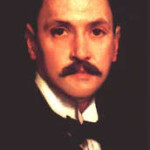Ten Key Steps In Writing Your Novel #3
The # 3 Key Step:
Choose your characters first as they are harder to imagine than the plot, and they are the keystone to your book. As you write, your plot may or may not change, but your characters will develop and have a life of their own. As the characters develop, they’ll take on distinct personalities, and, as with good friends, you will know in certain situations what they will or will not do.
Listen to your characters. Listen to their demand, who if they were to come to live, would have a different fate than what you are planning. They will tell their own story, and if the story they tell surprises you, will it will surprise the reader, too. As Somerset Maugham says, “you can never know too much about your characters.”
characters.”
In writing my last novel Long Ago and Far Away, I started the book thinking it would be about the male character who I introduced in the first chapter, but when the female came onto the page, she dominated the plot. While the book is about both main characters, she has drawn the most attention, and is the most interesting of the two. It is just an example of how someone you imagine will take over a story.
The reader has to believe that your characters exist or could exist. Your characters need to be distinctively drawn. Nothing better defines characters than their actions, their purpose in life. Their purpose may be good or evil. It doesn’t matter. All that matters is that your reader sees their actions and purpose, believes them, and continues to be interested in them.
Your novel can be light on plot and short on style, but if your characters are real they can save your book by gaining the reader’s sympathy. Keep your characters “in character’ in terms of what they are wearing, how they speak, their traits, their dialogue, their behavior, their motivations. In doing so, over the pages of your book, your characters will become flesh and blood to the reader. Just remember, if you create ‘real’ characters on the page, they will give you a ‘real’ story to tell.
One final thought, don’t create a cast of characters. Write a tale about two or three memorable characters, all of them filled with purpose.
I agree about characters. I’m always amazed when one of mine comes up with some new idea or wise saying. They do take on a life of their own. It’s part of the joy of writing!
I agree that characters are the cornerstone of a good book – as a reader, I can forgive glitches in a plot if the characters resonate with me.